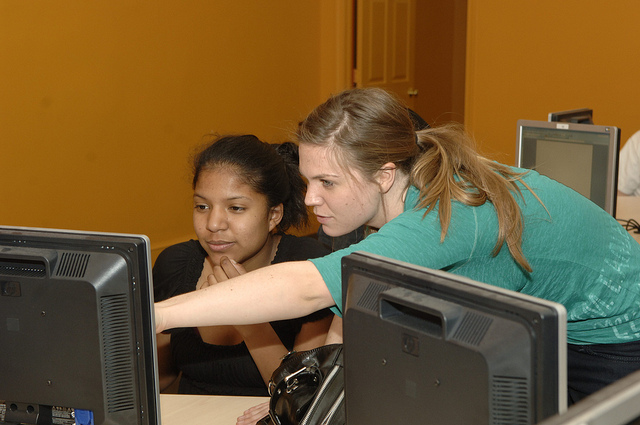Ineffective assessments, part I: An intro

Click here to read all of the articles in our Ineffective Assessments series.
In the U.S. public school system, there is a lot of talk of “accountability.” Teachers are held accountable for what their students do, or do not, know. Administrators are taken to task if standardized test scores are too low, or drop from one year to the next. State lawmakers are asked to correct any “crisis” of underperforming students through legislation. When it comes to the progress and success of our K-12 students, the ball is constantly being passed, and passed back again, until some course of action is put in place that will presumably fix whatever academic woe is perceived in a particular school, district or state.
One major way that this accountability is enforced is through standardized testing. By applying the same requirements to each teacher, and each student within a state, the general theory is that accountability for student success will be upheld. Truly understanding what our students are learning is more complicated than that, though. The state of today’s K-12 assessments is a sad one, and is one of the biggest reasons our public schools are failing their students.
There are other ways that we measure the success of K-12 systems in the U.S., both public and private. One way is through graduation rates, and another is through college acceptance and graduation numbers. These only tell part of the story though. Presumably, handing someone a diploma means that person has mastered the required material and “knows” what is needed to earn the graduation distinction. Research has shown us, however, that this conclusion is an oversimplification.
We know that American students lag behind other developed countries when it comes to math and science achievement. Students in countries like South Korea and Singapore consistently outrank U.S. students when it comes to basic and advanced math and science course achievements. Survey after survey of business leaders bemoan the lack of basic writing and communication skills their employees possess and on the 2011 National Assessment of Educational Progress, only 27 percent of 12th graders were proficient in writing.
Waiting until students are done with K-12 learning is simply too long to figure out if they are learning what they need to know. A student who falls behind on subject matter in a particular grade, for example, will struggle in the next grade to succeed. So it becomes impossible to base the success and improvement rates of students on the end results alone. Assessments throughout the K-12 journey are necessary — but how those assessments are administered is one of the most hotly contested issues surrounding the K-12 system today.
The bane of every K-12 educators’ existence is the “teaching to the test” mentality. Even teachers who are strongly opposed to such a narrow way of educating students find that staying within a narrow realm of material becomes a necessity of contemporary classroom assessment culture. Increasingly, the worth of teachers is placed solely on student performance results, specifically when it comes to standardized testing. The entire value of what a teacher does in a classroom during a given year, and how the teachers performed in the prior years, often boils down to what a statewide blanket test spits out in the way of student results. While benchmarks for grade levels have merit, the way that assessments are administered and weighted in today’s K-12 public schools are ineffective and unfair to the teachers who must adhere to them.
Some of the biggest arguments surrounding the use of standardized assessments to determine student success and teacher capability include:
- Inadequate sampling of material being tested.
- Indirect, rather than direct, observation of what a student is truly learning.
- Too narrow a scope of knowledge.
- Not enough exceptions made for regionalisms or cultural differences within a state.
- Too many lasting inferences made about the students taking the tests that are based on very little merit.
- Too much emphasis on a punishment mentality, and not enough on what can actually be improved.
- No accounting for socioeconomic or disadvantaged barriers that hinder a teacher’s potential.
Despite the qualms with the basics of standardized testing, many educators view them as necessary evils of the improvement process. More cynical educators view it as a completely useless process that is never a true indicator of what students actually know. Proponents of K-12 assessments say that without them, there is no adequate way to enforce educator accountability and to truly know if students are learning what they should know at each level. Critics say that assessments put too much focus on a narrow span of information and force teachers to teach “to the test,” thus leading to rampant anti-intellectualism. Is rote memorization a true test of the knowledge of students? If teachers are given too much freedom, will students learn the basic things they need to know? These are just two of the many questions swirling around the K-12 assessment system in the U.S. and ones that need to be addressed and answered in order to build a stronger student body.






